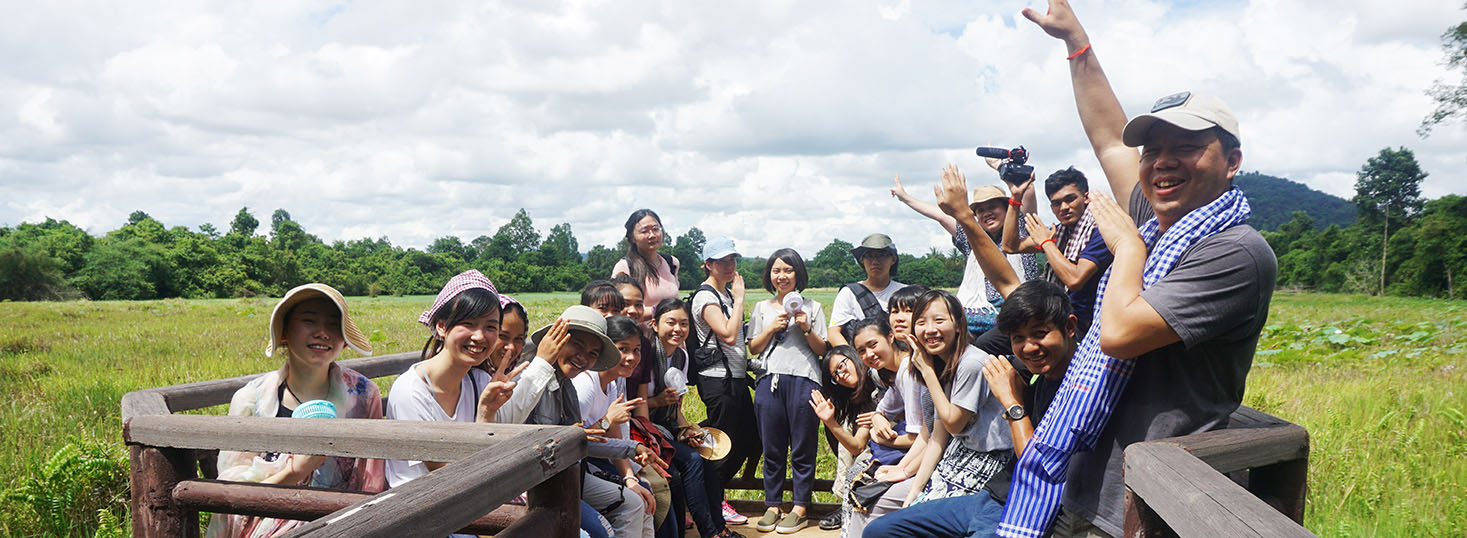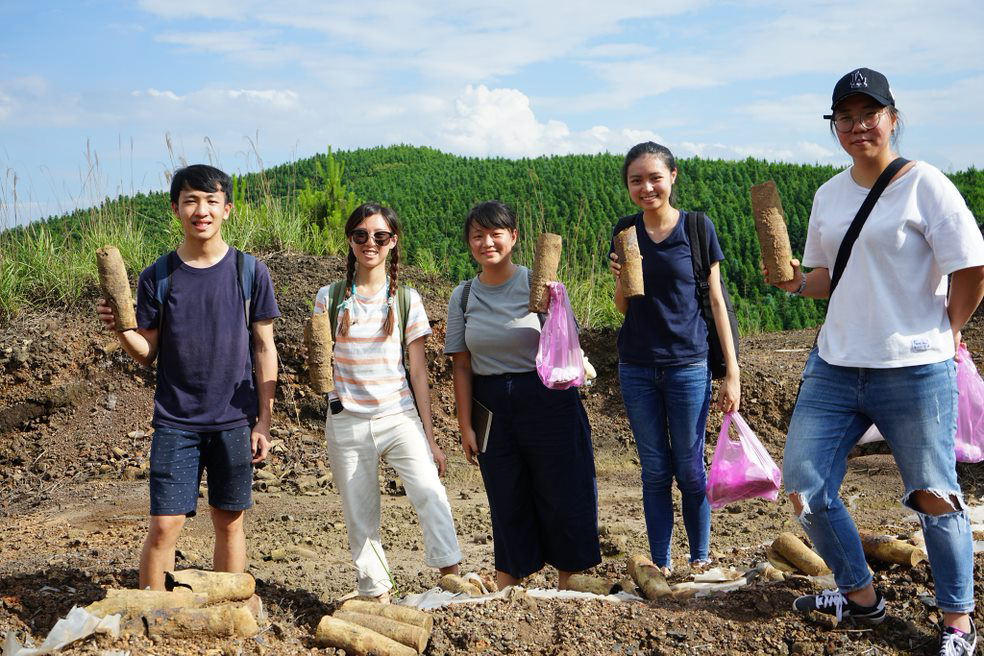Programmes
Anthropology is the study of human cultures and societies. It examines cultural differences around the world by studying human values and social practices. To better understand various aspects of cultural life, anthropologists adopt a holistic viewpoint and systematic research methods. They use both qualitative and quantitative methods of social science in their endeavour to understand the views and experiences of the people under study.
Anthropology equips students with a cross-cultural perspective, a broader vision of the world and a critical mind-set, all of which facilitate an understanding of the needs and conflicts of various societies and the reasons for cultural differences. Anthropology students learn to see Hong Kong and Chinese culture in a new light, and also learn about other cultures in Asia and the rest of the world.
In studying cultures that no longer exist, they use archaeological methods.

First Person Plural
Johnathan Ma chose anthropology for his undergraduate studies because he wanted to study archaeology.
‘Anthropology turned out to be much more than that. Anthropology piqued my curiosity because it is a broad and diverse subject covering topics from consumption in daily life to culture in a distant land.’
‘Studying anthropology is a very unique experience for me. Anthropology can give students a whole new perspective, turning the familiar into the unknown and the unknown into the familiar through its distinct research methods and mindset. All in all, anthropology can teach students a whole new way of seeing the world through another person’s eyes.’
CUHK is the only academic department in Hong Kong that offers an undergraduate programme in this subject.
Anthropology is a broad discipline covering a significant period ranging from the prehistoric to the contemporary era. In addition to the classic image of anthropologists who travel to faraway exotic places to study indigenous cultures or unearth artefacts from ancient historical sites, modern anthropologists investigate a wide variety of contemporary cultural phenomena, such as consumer behaviour and social activities in the online world. Anthropologists take an interest in any topic related to people’s daily lives.
‘Anthropology teaches us about the variety of ways that human beings live, both in the contemporary world and in the past. What is life like for a real estate trader in Mumbai, India, or a farmer in China? What is it like to be an ethnic minority in Hong Kong, England, Brazil, or Japan? How do economic roles traditionally adopted by men and women vary across time and place?’ explained Prof. Andrew Kipnis, Head of the Department of Anthropology.
‘Anthropologists research particular groups of people, but they always have ideas about how those groups compare to others around the world. Studying anthropology helps you understand people from different backgrounds as well as yourself, your family and your society,’ Prof. Kipnis pointed out.

Prof. Kipnis’ research focuses on how China is changing as people increasingly move to large cities. His research has taken him to surprising places, such as funeral parlours. Funeral parlours only exist as businesses in urban areas because rural people mostly conduct funerals without assistance from businesses. Therefore, funeral parlours tell him something about the process of urbanisation. They also give him insights into discrimination because people who work in these businesses are often stigmatised.
The undergraduate programme offered by the department focuses on social and cultural anthropology, as well as archaeology. The courses cover a wide range of topics, including
- principles and research methodology of anthropology,
- ethnographic studies of China, Hong Kong, and the world, and
- other contemporary issues.
‘People generally assume that anthropology graduates have difficulty landing a job or a prospective future. That is not true. Anthropology does have a way out, just not a straightforward way. It provides students with a unique mindset to solve issues in unconventional ways. Therefore, anthropology students are not restricted to a single career path; rather, they are suitable for all types of work,’ said Johnathan.
 Johnathan Ma, Year 2 in Anthropology
Johnathan Ma, Year 2 in Anthropology
‘Anthropologists are good at dealing with people from various backgrounds. This skill can be useful in both public and private sector careers. Our graduates have landed jobs at museums, social welfare organisations, governments, and even the financial sector. Graduates tell me that they summon the skills learnt in anthropology whenever they need to understand the people they are interacting with – how they think, their hopes, and their fears,’ remarked Prof. Kipnis.
In 2016–17, a new interdisciplinary archaeology minor was initiated in the department to meet students’ longstanding desire for in-depth archaeological training.
The department accepts around 18 new undergraduate students each year, and each new student is assigned a full-time teaching staff member as their advisor during freshman year. The Anthropology Students’ Society holds social gatherings regularly, bringing students, professors, and alumni together to share their experiences in research and work.
The programme also encourages students to step outside their comfort zones and learn abroad. A summer field trip is arranged for undergraduate students every year. In the summer of 2017, students visited Cambodia and enjoyed the opportunity to curate an exhibition about their overseas field trip. In 2018, students conducted their fieldwork by staying in a psychiatric hospital in Taiwan to explore psychiatric rehabilitation and community mental health. In the summer of 2019, students completed an archaeology field trip to Hunan, China and acquired hands-on experience in basic data-collecting techniques employed in archaeology (e.g., 3D simulation).

Regarding practical skills, at least half of the anthropology students have worked as interns in local and overseas museums and other institutions.
Johnathan wants to encourage secondary school graduates interested in anthropology to make unconventional decisions.
‘I would like to get personal and talk about how I’ve changed after studying anthropology. I used to see cultures and other similar things as binary – mine or theirs. I took them for granted without thinking about how they came into their current state. But after studying for one year, I realised that the cultures are not binary but rather coexisted with one another, and I am eager to learn more about the man-made world that we live in through anthropology.’
Published: Summer 2017
Last Updated: Summer 2022
